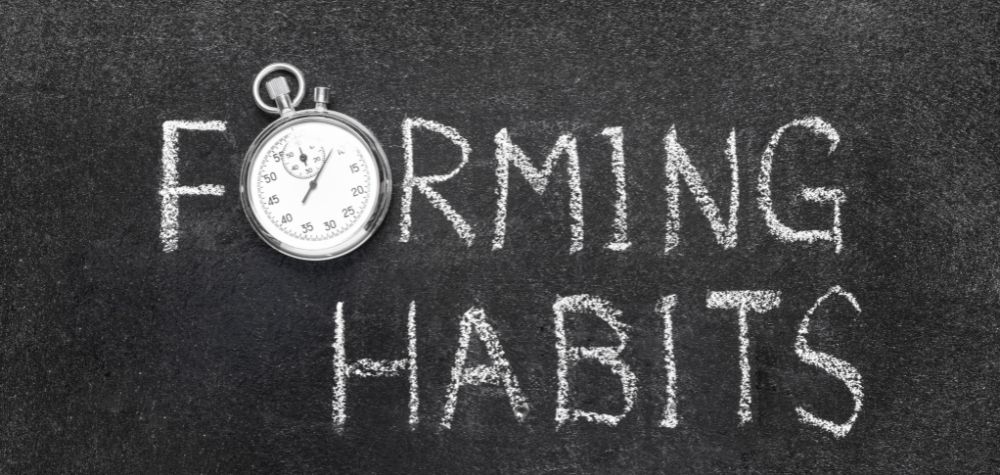How To Form Good Habits To Help Manage Your Work Priorities

Managing work priorities effectively is crucial for success in today’s fast-paced world.
Forming good habits can be a game-changer, leading to increased productivity, better time management, and reduced stress.
Here’s how you can cultivate habits that will help you excel in your work life.
Understanding the Importance of Good Habits
Good habits are the foundation of a productive and organised work life. They streamline daily routines, minimise decision fatigue, and create a structured task management approach. By embedding positive behaviours into your daily routine, you can focus more on high-priority tasks and less on mundane decisions.
Strategies to Form Good Habits
- Start Small & Be Consistent
Begin with small, manageable changes rather than overhauling your entire routine at once. Consistency is key. For example, if you aim to prioritize tasks every morning, start by dedicating five minutes daily to this habit.
- Set Clear Goals
Clearly define what you want to achieve. Specific goals, such as “spend 10 minutes each morning planning my day,” are more effective than vague intentions. Clear goals give you direction and a sense of purpose.
- Use Triggers to Your Advantage
Associate new habits with existing ones. For instance, if you want to review your task list daily, do it right after your morning coffee. This association makes it easier to remember and adopt the new habit.
- Track Your Progress
Keep a journal or use a habit-tracking app to monitor your progress. Seeing your achievements can motivate you to stick with the new habit. It also helps identify patterns and areas for improvement.
- Reward Yourself
Celebrate small victories along the way. Rewards reinforce positive behaviour, making it more likely for the habit to stick. Rewards can be powerful motivators, whether it’s a treat, a break, or simply acknowledging your progress.
Habits to Enhance Work Priorities
- Prioritise Tasks with a Daily Plan
Start each day by listing your tasks and prioritising them. Categorise tasks by urgency and importance. This habit ensures you focus on high-priority tasks and manage your time effectively.
- Practice Time Blocking
Allocate specific time slots for different tasks or activities. Time blocking helps prevent multitasking and distractions, allowing you to concentrate fully on one task at a time.
- Adopt the Two-Minute Rule
If a task takes less than two minutes to complete, do it immediately. This habit prevents small tasks from piling up and overwhelming, keeping your to-do list manageable.
- Take Regular Breaks
Incorporate short breaks into your work schedule to recharge. Techniques like the Pomodoro Technique, where you work for 25 minutes and then take a 5-minute break, can boost productivity and prevent burnout.
- Reflect and Adjust Weekly
Spend time at the end of each week reflecting on what went well and what didn’t. Adjust your strategies and goals for the following week. This habit of regular review ensures continuous improvement and adaptability.
Creating a Supportive Environment
- Minimise Distractions
Identify common distractions in your workspace and find ways to eliminate or reduce them. This might include setting boundaries for interruptions, using noise-cancelling headphones, or organising your workspace.
- Surround Yourself with Positive Influences
Engage with colleagues or friends who inspire and motivate you. Positive social interactions can reinforce good habits and support you when facing challenges.
- Set Up Reminders
Use reminders to help you stay on track with new habits. Calendar alerts, sticky notes, or habit-tracking apps can prompt you to perform your new habits consistently.
Overcoming Challenges
- Be Patient
Building new habits takes time. Don’t get discouraged if you don’t see immediate results. Patience and perseverance are essential for long-term success.
- Learn from Setbacks
Setbacks are part of the process. Instead of giving up, analyse what went wrong and how you can adjust your approach. Use setbacks as learning opportunities to strengthen your habits.
- Stay Flexible
Life is unpredictable, and rigid adherence to a routine might not always be possible. Stay flexible and adapt your habits to fit changing circumstances.
Forming good habits is a powerful strategy to enhance your work priorities. By starting small, setting clear goals, and being consistent, you can build a routine that maximises productivity and reduces stress.
Creating a supportive environment and overcoming challenges with patience and flexibility are crucial for sustaining these habits. With time and dedication, good habits can transform your approach to work and help you achieve your professional goals.




